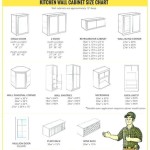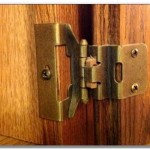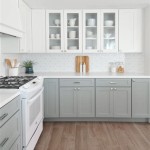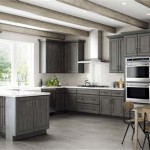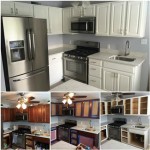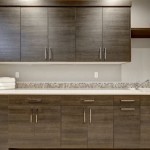18 Essential Aspects of Kitchen Cabinet Doors Design
Kitchen cabinet doors play a crucial role in the aesthetics and functionality of your kitchen. They come in a wide variety of designs, each offering a unique look and feel to your space.
Understanding the essential aspects of kitchen cabinet doors design is crucial when making a choice that aligns with your style preferences and overall kitchen design. Let's explore these aspects and how they impact the design of your kitchen:
1. Style
The style of your cabinet doors sets the tone for the entire kitchen. Traditional styles feature raised panels, intricate carvings, and decorative elements. Modern styles are characterized by clean lines, flat panels, and minimalist designs. Choose a style that complements the overall aesthetic of your kitchen.
2. Material
Cabinet doors are typically made from wood, laminate, thermofoil, or metal. Wood offers natural beauty and durability but requires regular maintenance. Laminate is a cost-effective option that mimics the look of wood and is easy to clean and maintain. Thermofoil is a durable and water-resistant material that resists stains and scratches. Metal adds a sleek and contemporary touch to the kitchen.
3. Finish
The finish of your cabinet doors affects their appearance and durability. Painted finishes are available in a wide range of colors and provide a smooth, consistent look. Stained finishes highlight the natural grain of the wood and enhance its character. Glazed finishes add a decorative touch and protect the wood from wear and tear.
4. Hardware
Cabinet hardware, such as knobs and pulls, can enhance the style and functionality of your cabinet doors. Choose hardware that complements the style of your doors and provides a comfortable grip. Consider finishes that match or contrast with the doors for a cohesive look.
5. Door Profile
The door profile refers to the shape and design of the door itself. Raised panel doors have a recessed center panel surrounded by a raised frame. Flat panel doors have a smooth, flush surface and create a modern look. Beaded doors feature decorative edges that add a touch of character.
6. Overlay
Overlay refers to how the cabinet door covers the cabinet frame. Full overlay doors completely cover the frame, creating a seamless look. Partial overlay doors overlap the frame by 1/2 to 3/4-inch, offering a more traditional appearance.
7. Frame Style
The frame style of your cabinet doors determines the overall look and structure of the cabinet. Face frame cabinets have a decorative frame that surrounds the doors and drawers. Frameless cabinets are constructed without a face frame, creating a more modern and streamlined look.
8. Door Swing
The door swing determines how the door opens and closes. Inset doors are mounted within the cabinet frame, creating a flush, recessed look. Overlay doors swing outwards and overlap the cabinet frame, providing a traditional appearance.
9. Glazing
Glazing options can add a touch of elegance and visual interest to your cabinet doors. Clear glass allows you to display your dishware, while frosted or textured glass provides privacy and a decorative touch. Consider the size and shape of the glass to enhance the overall design.
10. Moldings and Trim
Moldings and trim add decorative details to your cabinet doors. Crown molding can be added to the top of the cabinets, while base molding can be added to the bottom. Trim can also be used to enhance the edges of the doors and drawers.
11. Color
The color of your cabinet doors is a major design element that can influence the overall mood and atmosphere of your kitchen. Neutral colors, such as white, gray, and beige, offer a timeless and versatile look. Bold colors, such as navy blue, emerald green, and burgundy, can create a dramatic and stylish statement.
12. Texture
The texture of your cabinet doors can add depth and interest to your kitchen. Smooth finishes create a sleek and modern look, while textured finishes, such as faux wood grain or distressed finishes, add a touch of rustic charm.
13. Pattern
Patterned cabinet doors can add a unique and eye-catching element to your kitchen. Geometric patterns, such as chevron or herringbone, create a modern and sophisticated look. Floral patterns, such as damask or toile, add a touch of feminine charm. Consider the scale and placement of the pattern to achieve the desired effect.
14. Symmetry and Balance
Symmetry and balance are essential principles of kitchen design. Symmetrical arrangements, such as matching cabinet doors on either side of a range, create a sense of order and stability. Asymmetrical arrangements, such as placing a single accent cabinet door on the end of a run of cabinets, can add a touch of interest and dynamism.
15. Proportion and Scale
The proportion and scale of your cabinet doors should be in harmony with the overall size and layout of your kitchen. Large doors in a small kitchen can make the space feel cramped, while small doors in a large kitchen can look out of place.
16. Functionality and Storage
While aesthetics are important, functionality should also be a priority. Consider the storage space provided by your cabinet doors and choose designs that meet your needs. Doors with integrated drawers or shelves can maximize storage capacity and make your kitchen more efficient.

Kitchen Cabinets With Glass Doors 18 Inspiring Examples Coco Lapine Designcoco Design

Kitchen Cabinets With Glass Doors 18 Inspiring Examples Coco Lapine Designcoco Design

Pin On Kitchen

Kitchen Cabinets With Glass Doors 18 Inspiring Examples Coco Lapine Designcoco Design

18 Full Height Base Cabinet With Single Door In Omni Graphite Mantra Cabinets

Kitchen Cabinets With Glass Doors 18 Inspiring Examples Coco Lapine Designcoco Design

18 Full Height Base Cabinet With Single Door In Spectra Snow Mantra Cabinets

10 Simple Ideas To Update Your Kitchen Cabinets Jenna Sue Design

Kitchen Cabinets With Glass Doors 18 Inspiring Examples Coco Lapine Designcoco Design

Kitchen Cabinets With Glass Doors 18 Inspiring Examples Coco Lapine Designcoco Design
Related Posts


